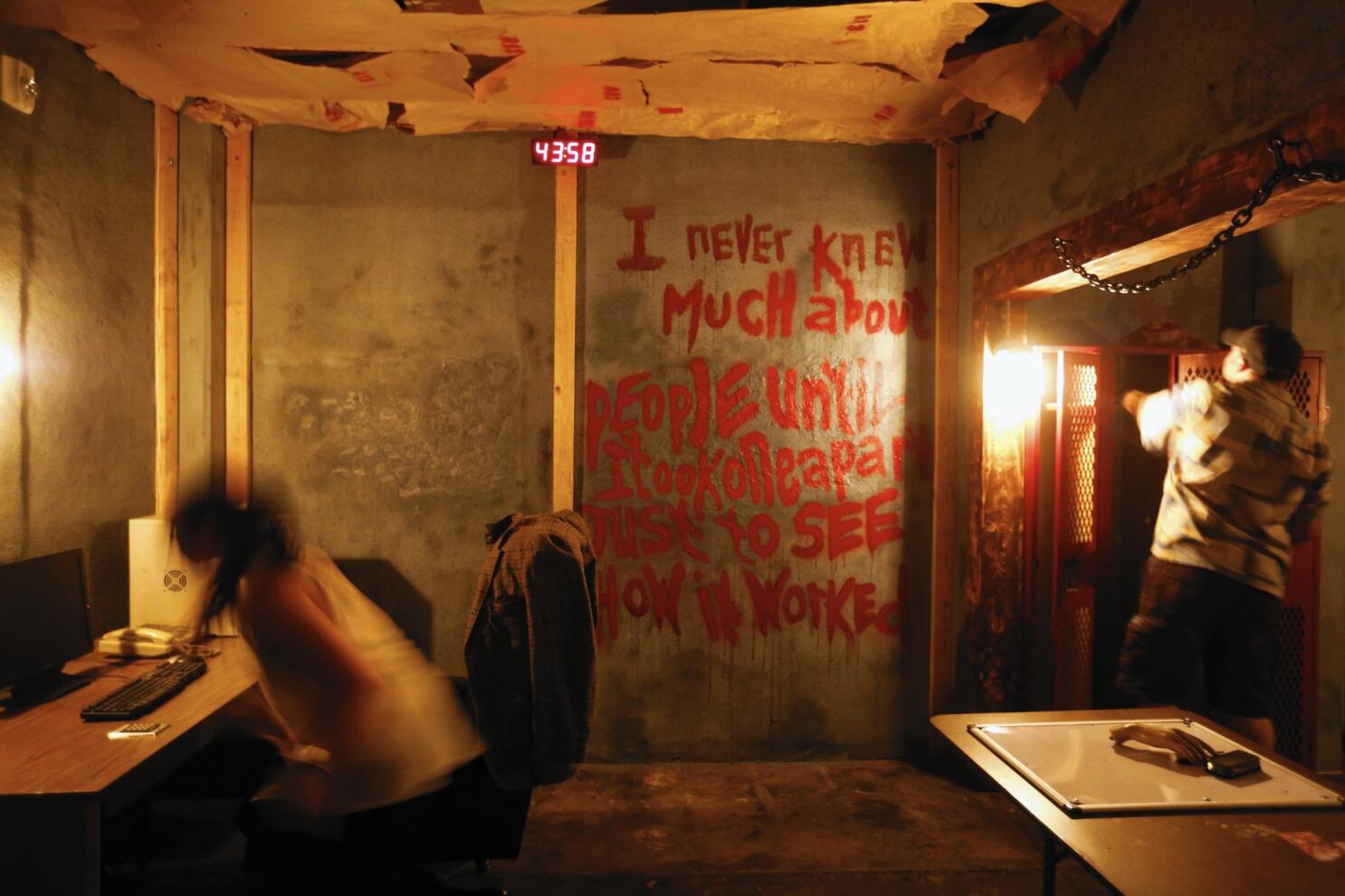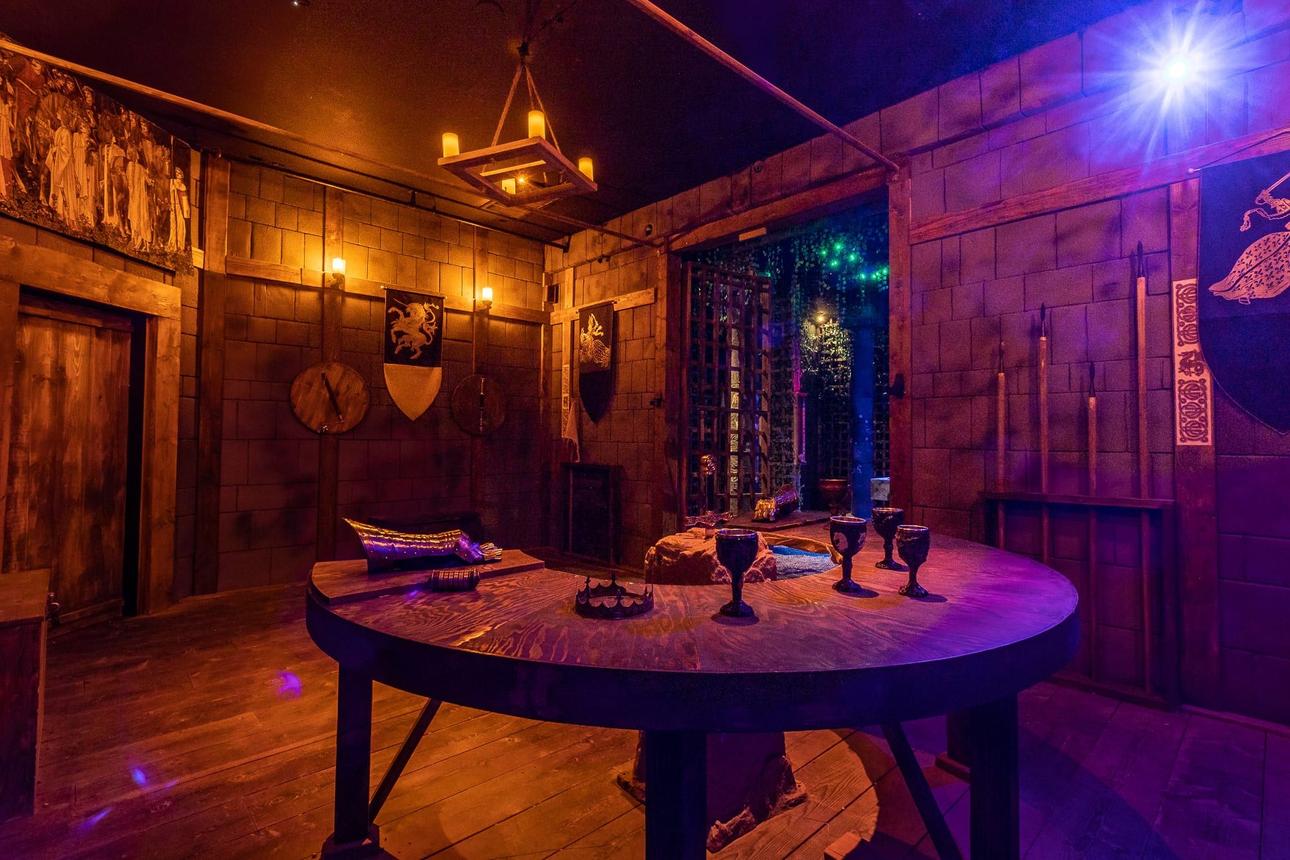Team Strategies: Exactly How to Team up Efficiently in a Retreat Area
Browsing the intricacies of a retreat area necessitates greater than simple interest; it needs a well-coordinated strategy based in clear interaction, calculated duty assignments, and adept time monitoring. Groups must proactively pay attention per member's understandings, appoint functions that line up with specific toughness, and keep routine check-ins to ensure emphasis and stop redundancy. By cultivating an environment that values communication and flexibility, groups can considerably heighten their performance and success rates. The nuances of these methods can transform the experience, yet exactly how specifically can they be carried out to make best use of the possibility for success?
Establish Clear Communication

To facilitate clear communication, it is necessary to designate a main factor of contact for info circulation. Brief, concentrated updates from each group member can keep the team educated without overwhelming them with details.

Assign Roles Strategically
While clear interaction sets the foundation for effective teamwork, appointing functions purposefully ensures that each staff member's toughness are used successfully. In an escape area situation, the time-sensitive and complex nature of challenges demands a well-organized strategy to task delegation. By determining and leveraging individual proficiencies, teams can maximize their analytic abilities and boost general performance.
A person with an eager eye for information might excel in locating hidden objects, while a rational thinker might be better suited to resolving challenges. This function frequently needs solid business and social abilities.
Second, make sure that functions are adaptable and versatile. As new difficulties emerge, the team must have the ability to pivot, reapportioning jobs as called for. This versatility aids keep energy and protects against traffic jams that might happen due to rigid duty projects.
Eventually, a calculated technique to function job not just maximizes the strengths of each staff member however also fosters a natural environment, driving the team in the direction of an effective retreat.
Use Diverse Skills
Recognizing and utilizing the varied abilities within your team can dramatically elevate your efficiency in an escape area. Each staff member brings distinct toughness to the table, and successfully leveraging these abilities can accelerate problem-solving and boost overall effectiveness. A group member with strong analytical abilities might excel at analyzing intricate codes or patterns, while another with eager empirical capacities might quickly find surprise ideas that others may forget.
Effective communication is crucial to utilizing these varied abilities. Motivate employee to articulate their understandings and concepts immediately, guaranteeing that all prospective remedies are considered. This inclusive method cultivates a vibrant atmosphere where creativity and critical thinking can thrive. Furthermore, assigning tasks that line up with each member's staminas can prevent bottlenecks and guarantee that development is constant.
Moreover, diversity in skills typically converts to diversity in thinking styles, which is vital in a retreat area setup. While some challenges may call for sensible thinking and precision, others might gain more tips here from imaginative and lateral thinking. By acknowledging and leveraging this diversity, teams can resolve a more comprehensive variety of obstacles better, thereby enhancing their chances of an effective getaway.
Manage Time Successfully

First, allot initial mins for a fast study of the room. Determine visible problems and divide jobs based upon employee' staminas, making sure that no one is idle. Set browse around these guys interior time checkpoints to examine development periodically; for example, purpose to have half the puzzles solved by the mid-point of the video game. This technique can help keep the team concentrated and protect against time from escaping unnoticed.
Additionally, avoid one-track mind. If a puzzle is taking also long, turn team participants or go on to one more challenge, returning later on with fresh viewpoints. Communication is extremely important-- maintain everyone upgraded on resolved challenges and remaining jobs to avoid repetitive efforts.
Lastly, make use of any type of hints or hints moderately however strategically - best escape room. Recognizing when to ask for aid can save beneficial time. By adhering to these time administration concepts, teams can dramatically improve their chances of an effective and satisfying escape area experience
Debrief and Show
Representation is an essential aspect of group growth and improvement in the context of getaway areas. Once the difficulty is finished, whether successfully or otherwise, it is critical for the team to participate in a structured debriefing session. This procedure allows employee to assess their performance, determine toughness, and identify locations for improvement.
Begin the debrief by reviewing what went well. Highlight specific instances of reliable interaction, problem-solving, and collaboration. Identifying these positive habits strengthens them and encourages their rep in future challenges.
Review minutes of complication, miscommunication, or ineffective methods. Urge an open and positive discussion where group members can share their viewpoints without concern of objection.
Verdict
To conclude, successful cooperation in a retreat area is based upon clear communication, critical duty tasks, the efficient usage of diverse skills, and efficient time administration. Routine check-ins and structured debriefings are necessary for keeping emphasis and promoting continuous improvement. By developing a cohesive and flexible group atmosphere, the likelihood of effectively solving problems and attaining the goal of leaving the space visit the site is considerably enhanced. This strategy not just ensures success yet likewise advertises cumulative growth and knowing.